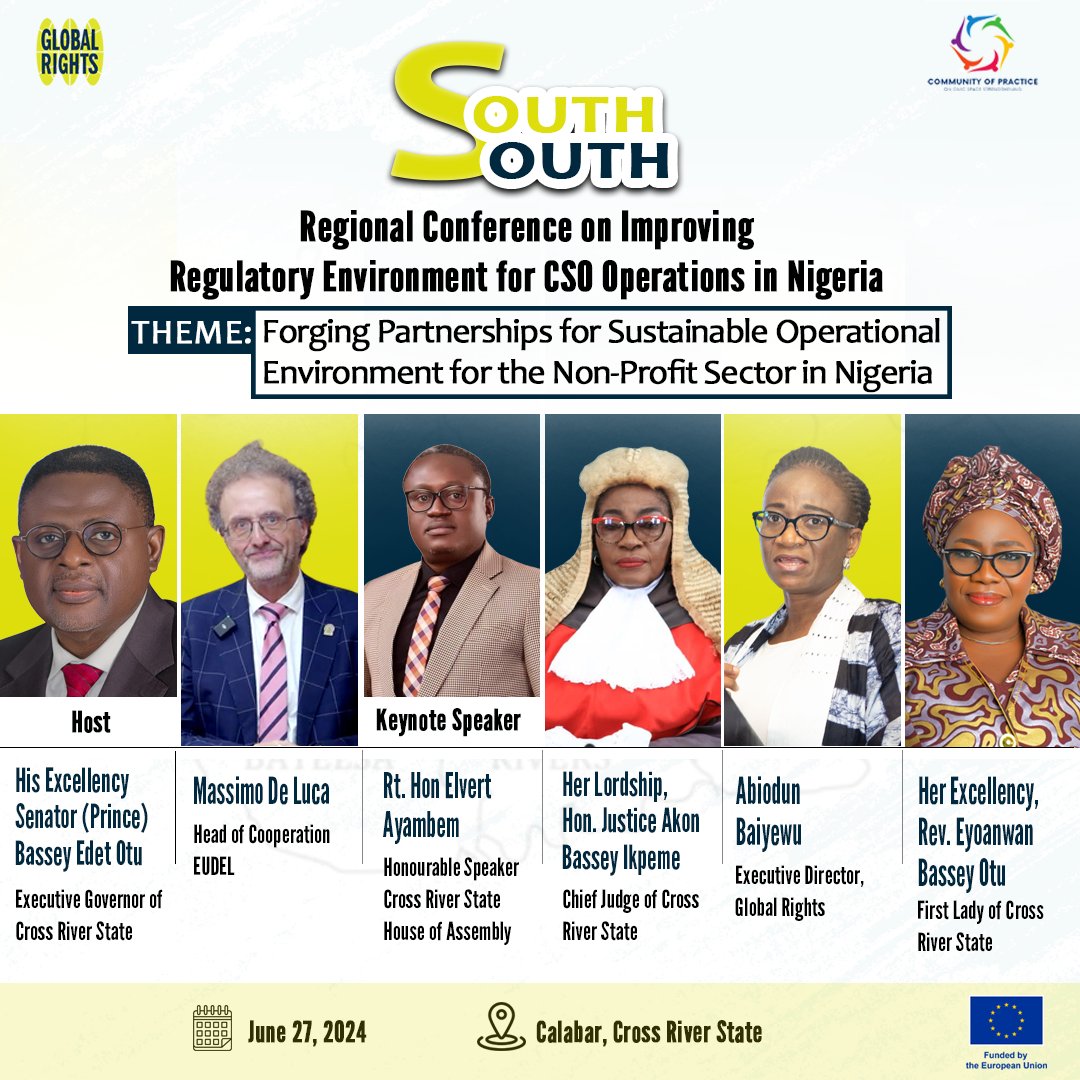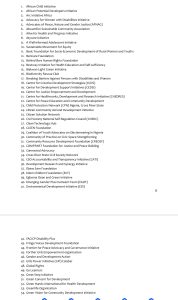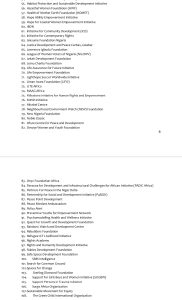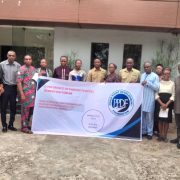Global Rights, 122 Organisations call for Harmonisation of regulatory compliance Requirements for CSOs

By Ekemini Simon
Global Rights together with 122 Civil Society Organisations (CSOs) under the aegis of Community of Practice (COP) on Civic Space Strengthening have called for the harmonisation of regulatory compliance requirements for CSOs.
The organisations also asked for an agreed single body for registering CSOs in the State to avoid multiplicity of registration and regulations thus ensure
accessibility, centralization, and simpler regulatory compliance requirements.
The call was part of the communique signed by 123 organisations and issued from the south-south regional conference on improving CSO regulatory environment recently held in Calabar by Global Rights in collaboration with the Community of Practice (COP) on Civic Space Strengthening and the European Union Delegation to Nigeria and ECOWAS.

The participants had observed that significant challenges and overbearing standards mark the landscape in which CSOs operate in Nigeria, particularly the regulatory multiplicity and registration requirements.
The organisations asked for improved collaboration between the State and CSOs to foster the implementation of their plans and programmes, including financing CSOs.
They called for an enhanced collaboration between the State and CSOs to drive the process of developing a model framework that would improve the regulatory environment for CSO operations in Nigeria.
While requesting the legislature across States to work in concert with the office of the Commissioner of Justice to propose a bill to confer body corporate to organizations registered at the state and local government levels based on the provisions of the 1999 Constitution, the judicial precedent set by the Court of Appeal and the principle of federalism operating in Nigeria, the organisations called for an amendment to the Constitution to remove the ambiguity of Item 32 Part 1 of the second schedule stressing that the focus on Item 32 should be examined through the lens of ensuring simpler registration and regulatory requirements for CSO operations.

The organisations resolved that for national development to be promoted, there is need for a mutually beneficial relationship between the arms and three tiers of government with civil society organizations playing pivotal roles in national development.
The communique added ” The governments including the executive, legislature, and judiciary in the south-south region will work in harmony with the civil society organizations to adopt a regulatory framework that allows a single MDA to register CSOs in the States – such a model will promote the accessibility needed for improving the regulatory environment for CSO operations.
“All stakeholders including the regulators, CSOs, legislature, and donor agencies commit to drive the process of developing a model harmonization policy or law for CSO registration requirements at the state level with input from all relevant stakeholders which will not only enhance the operational effectiveness and efficiency of the sector but also provide opportunity to the state government to coordinate CSOs interventions within the state better.

“To promote holistic inclusion in efforts to improve the regulatory environment for CSOs including paying attention to key actors, gender, disability and other parameters for inclusion including access to bank accounts and other financial services by State/Local Government registered CSOs).”
Meanwhile, the conference which had the theme “Forging Partnerships for Sustainable Operational Environment for Non-Profit Sector in Nigeria” was primarily focused on driving critical conversations among stakeholders on ways of improving the regulatory environment for the non-profit sector in Nigeria particularly to highlight the need for the harmonization of the CSO regulatory framework at the subnational levels to address issues such as the multiplicity of registration requirements with different MDAs.
The conference also sought to facilitate a shared understanding of the opportunities in extant laws that could enhance CSO operations at the subnational level. It reflected on efforts to strengthen the civic space and improve the regulatory environment in South-South Nigeria.







